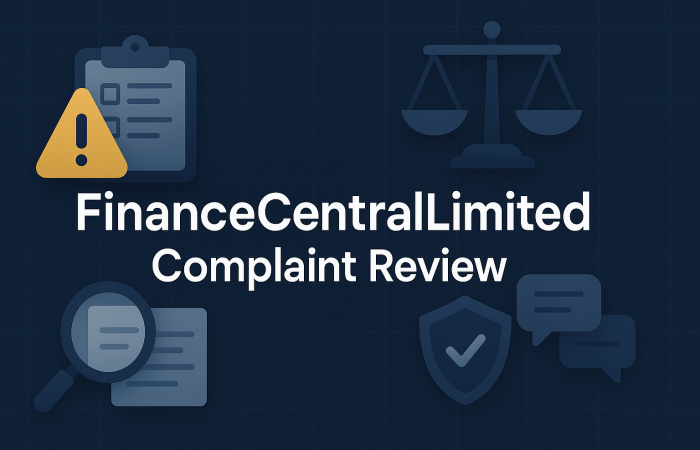As technology continues to evolve, so do the methods used by scammers to steal people’s personal and financial information. The ATO scam is one of the latest and most concerning examples of this trend, as it explicitly targets Australian taxpayers with fake messages and emails designed to mimic official communications from the ATO.
With so many people relying on online platforms to manage their tax affairs, it’s more important than ever to be aware of the risks and protect yourself from these scams. In this article, we’ll explore the ATO scam in more detail and provide practical advice on how to stay safe online.

What is ATO?
The Australian Taxation Office (ATO) is the government agency responsible for administering Australia’s taxation system. Its primary role is to collect tax revenue and ensure that individuals and businesses comply with their tax obligations.
The ATO is responsible for various functions, including administering income tax, goods and services tax (GST), excise duties, and superannuation. It also provides multiple services and resources to help taxpayers understand their obligations and manage their affairs more effectively.
In addition to its core tax collection and compliance responsibilities, the ATO also plays a crucial role in supporting the Australian government’s broader economic and social objectives.
How does the ATO Scam work?
The ATO scam typically involves fraudsters using fake messages, emails, or social media accounts to trick people into giving away their personal and financial information. The scam works by impersonating the ATO and using official-looking messages to gain the victim’s trust, asking them to provide sensitive information such as their name, address, tax file number, bank account details, or credit card information.
These messages often claim to be time-sensitive and may warn the victim that they will face penalties or legal action if they do not comply with the request. They may also ask the victim to click on a link or download an attachment, which can then install malware or other harmful software onto the victim’s device.
Some common examples of ATO scams include:
- Phishing emails that look like they come from the ATO and ask the victim to click on a link or provide personal information.
- Fake social media accounts that impersonate the ATO and ask users to send direct messages to them for assistance.
- Phone calls from scammers claiming to be from the ATO and demanding payment for overdue taxes or fees.
- SMS messages that contain links to fake ATO websites or ask the victim to reply with personal information.
With carefully designed social engineering tactics and the victim’s willingness to trust official-looking messages, scammers hope to bypass the victim’s critical thinking and persuade them to give away their sensitive information.
Red Flags
To avoid falling victim to an ATO scam, one must be aware of some common red flags to watch out for. Here are some warning signs that a message or email may be a scam:
- Urgency or Threats: ATO scams often use speed and threats to create a sense of pressure on the victim. Scammers may claim that the victim will face legal action or penalties if they don’t comply with the request or that their tax refund will be delayed.
- Suspicious Links: Messages or emails that contain links to websites that are not the official ATO website should be treated with caution. These links may lead to fake websites that look like the ATO site but are designed to steal personal and financial information.
- Unsolicited Contacts: Be wary of unsolicited phone calls, emails, or messages that ask for personal information. Legitimate contacts from the ATO will usually be initiated by the taxpayer or be in response to a specific query or request.
- Poor Grammar and Spelling: Messages or emails with poor grammar and spelling mistakes may indicate a scam. The ATO is a government agency that usually uses professional language and correct grammar and spelling.
- Unusual Payment Methods: The ATO will never ask for payment via unique methods such as gift cards, Bitcoin, or wire transfers. Scammers often ask for these payments because they are difficult to trace and can be quickly converted into cash.
- Unsolicited Downloads: Be cautious of messages or emails that ask you to download attachments or software. These files may contain malware or viruses that can damage your device or steal your personal information.
How to protect yourself?
To protect yourself from falling victim to an ATO scam, exercise sound judgment when you receive messages or emails claiming to be from the ATO. Here are some critical steps you can take to safeguard yourself:
First, avoid clicking on suspicious links you receive via email or text message. Instead, check your required information directly on ATO’s official website. Suppose you are unsure about the legitimacy of a statement claiming that you owe money to the ATO or are owed a tax refund. In that case, you can call their official contact number to verify the information.
This will help you to avoid fraudulent websites or phishing scams that attempt to capture your personal information.
Secondly, pay attention to the sender’s details. Check the sender’s email address or phone number and compare it with the official ATO contact details. If there is a discrepancy or the sender appears to be using a personal email address, avoid it altogether.
Lastly, be cautious about sharing personal or financial information in response to texts or emails. The ATO will never ask for sensitive information such as your credit card details, tax file number, or bank account information via unsolicited messages.
Report the scam
If you receive a suspicious text or email claiming to be from the ATO, report it immediately to the relevant authorities. You can forward the message to the ATO at reportemailfraud@ato.gov.au or by contacting their dedicated Scam Hotline.
ATO Scam Text Conclusion
The ATO scam is a dangerous form of phishing that targets unsuspecting Australians with fake messages and emails. By staying vigilant, checking the sender’s details, and verifying any claims, you can protect yourself from falling victim to this scam.
If you are a victim, please let us know by commenting below, and if you have lost a significant amount of money to online scams, do not lose hope. We can help you recover your funds!




I was scammed by one of the Love scams stolen from General Paul J LaCamera for total of $56,000 and was all of my hard earned savings. I’m 79 yrs old and was told I would be paid back not knowing this was not him until all was said and done. This is great pain emotionally and financially.
We’re really sorry to hear about your experience. Falling victim to scams can be incredibly distressing, especially when it involves a significant amount of money and affects your hard-earned savings. It’s important to remember that you’re not alone, and many people have unfortunately faced similar situations.
We recommend getting a free consultation with CNC Intelligence.
Please take care, and if there’s anything else we can do to assist you, please let us know.